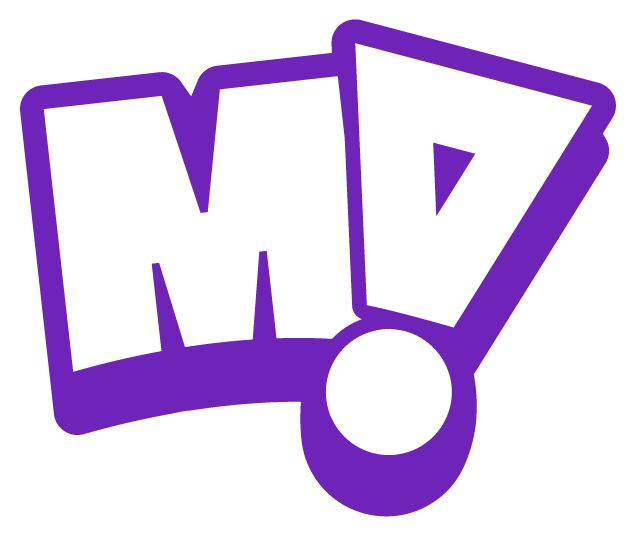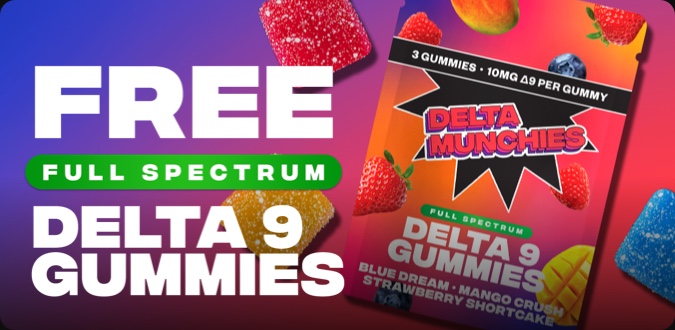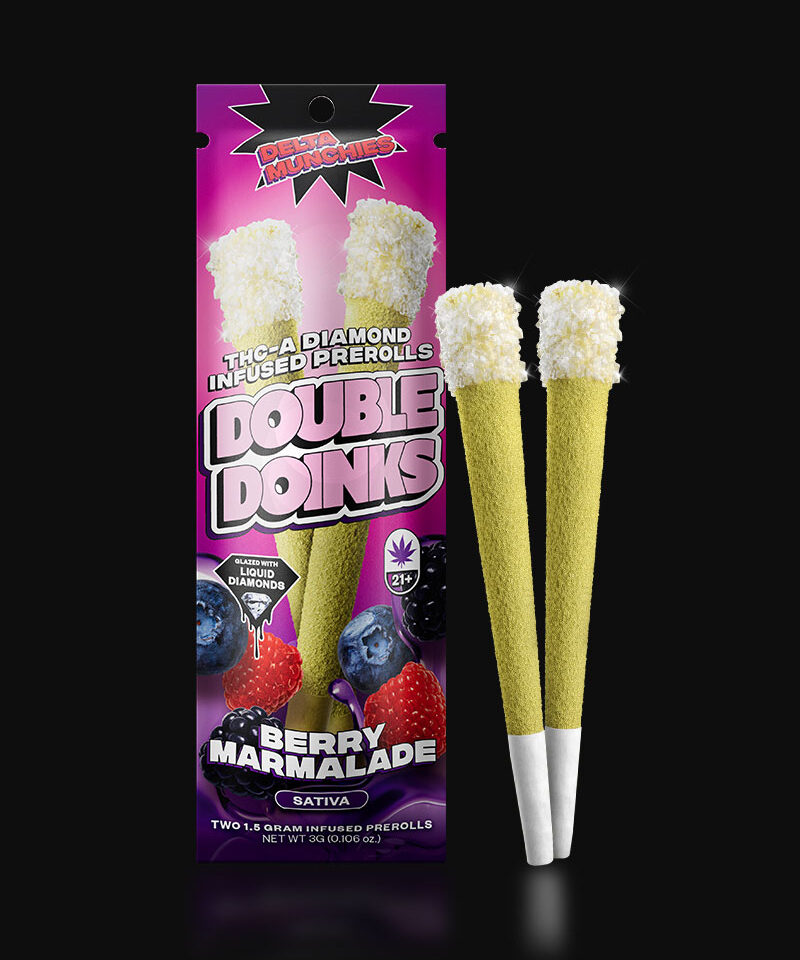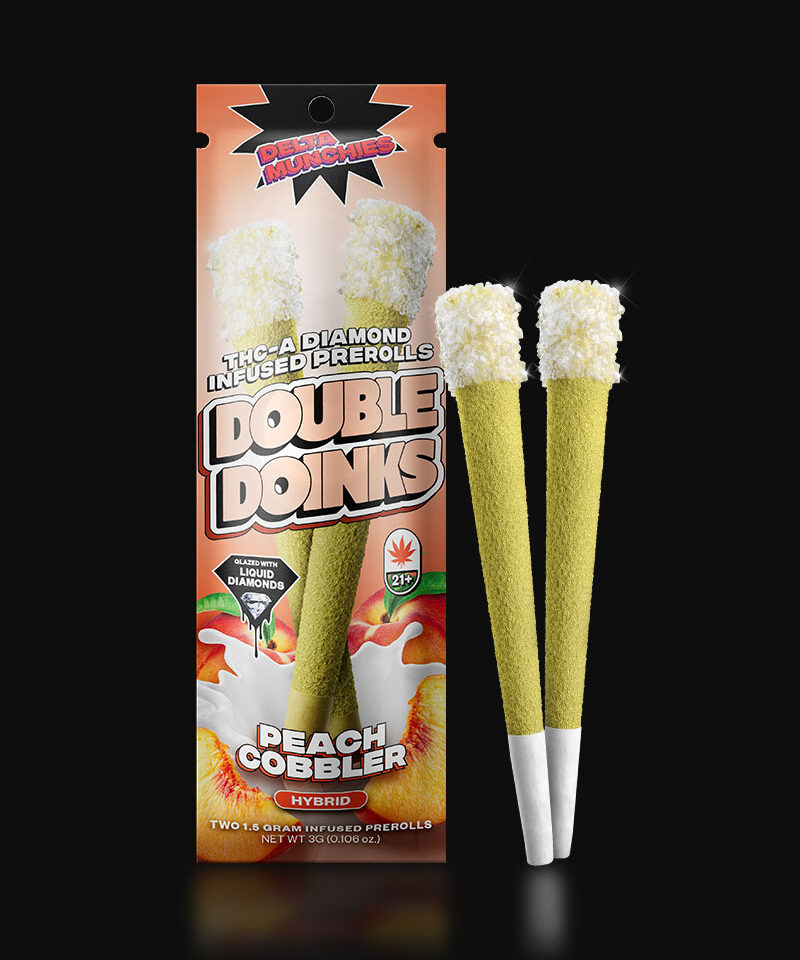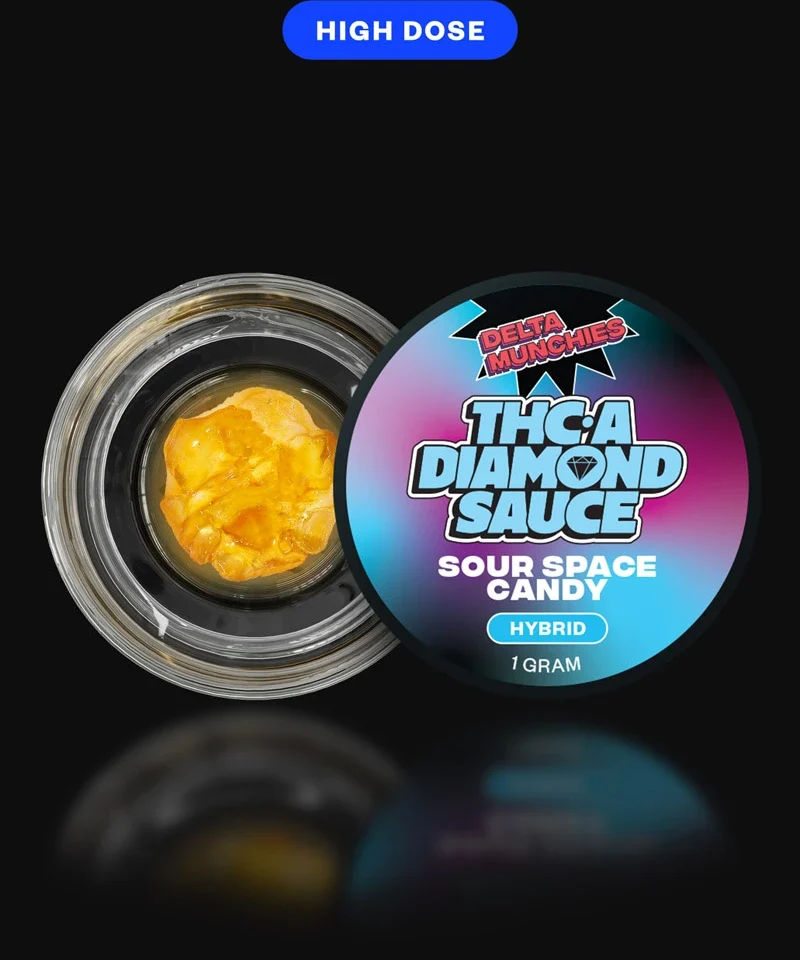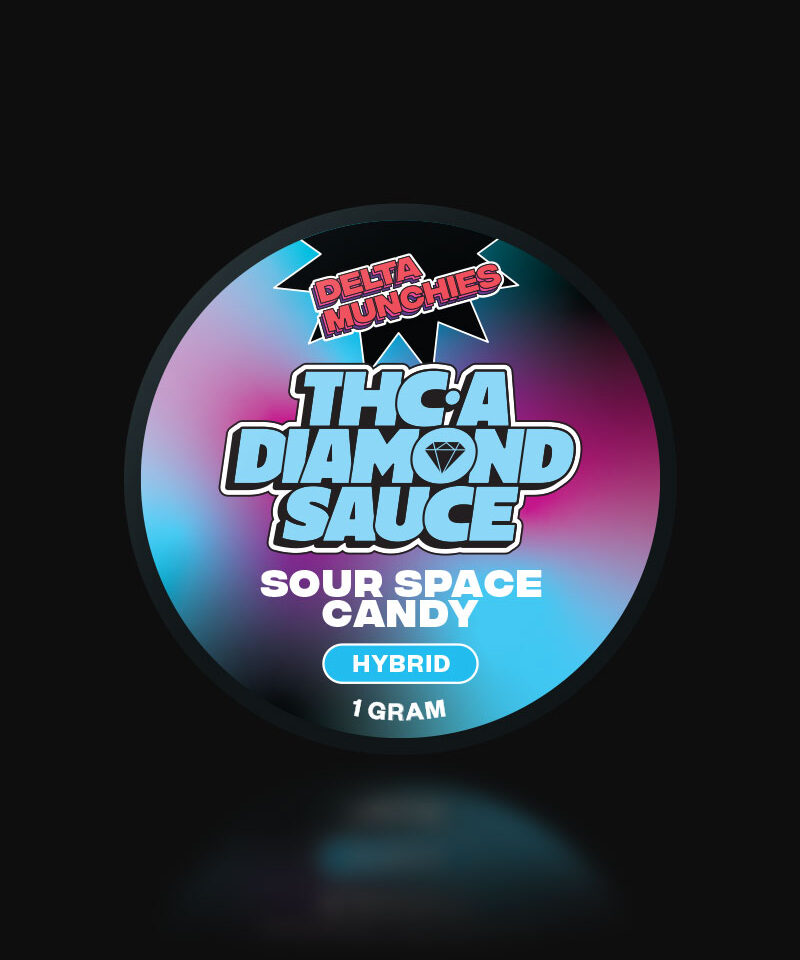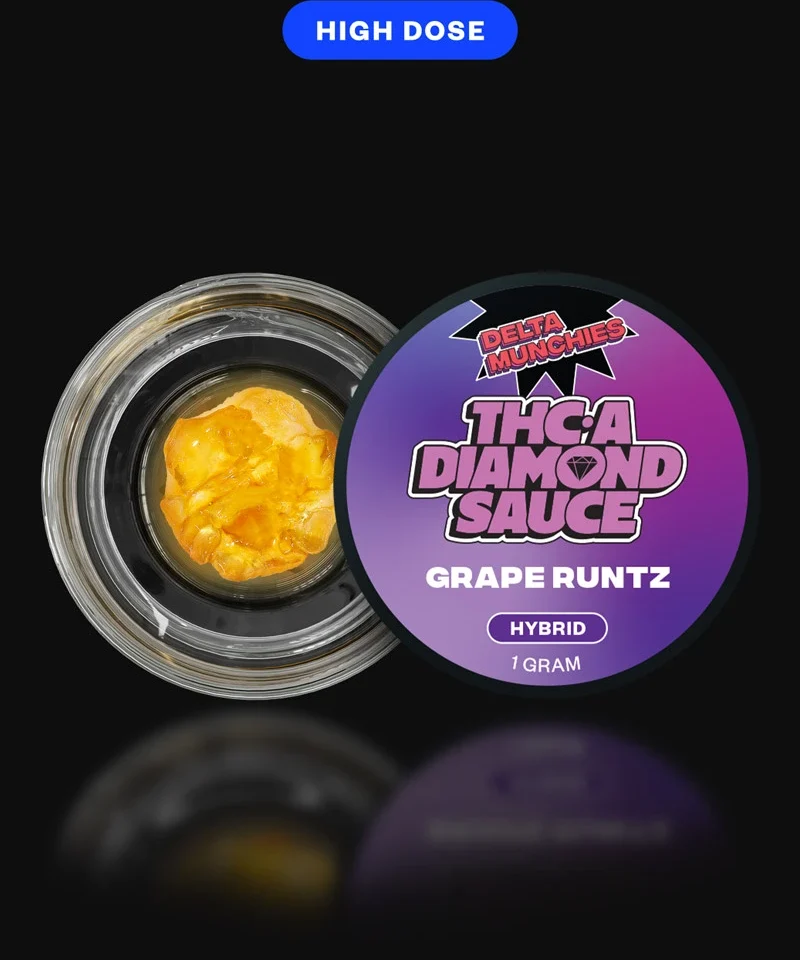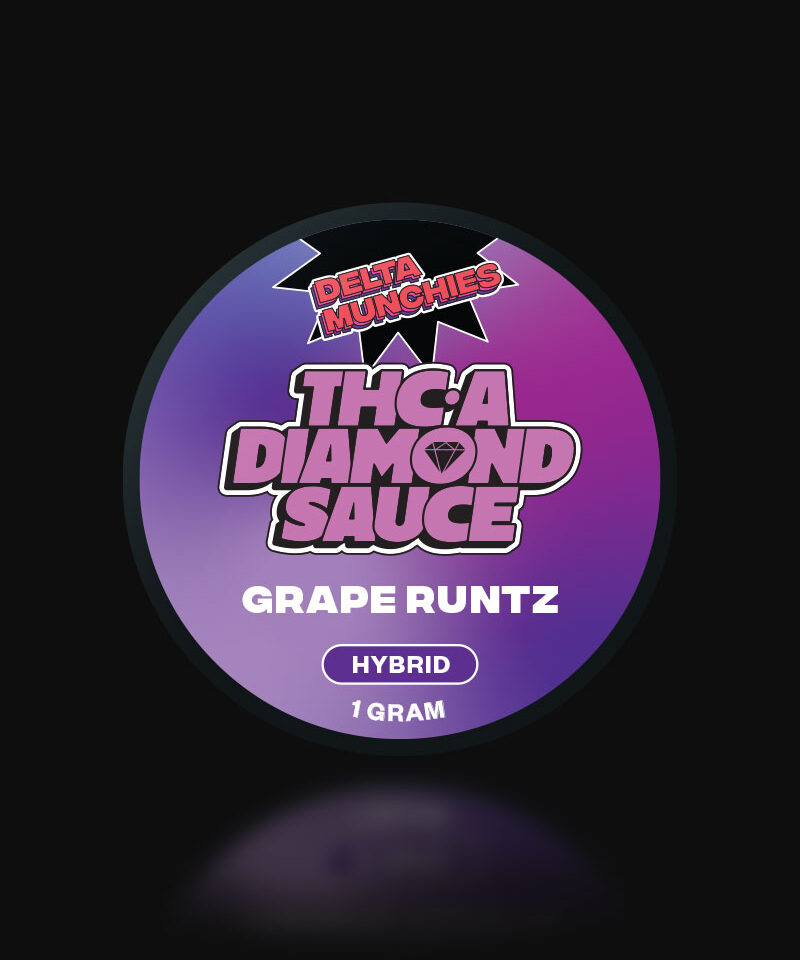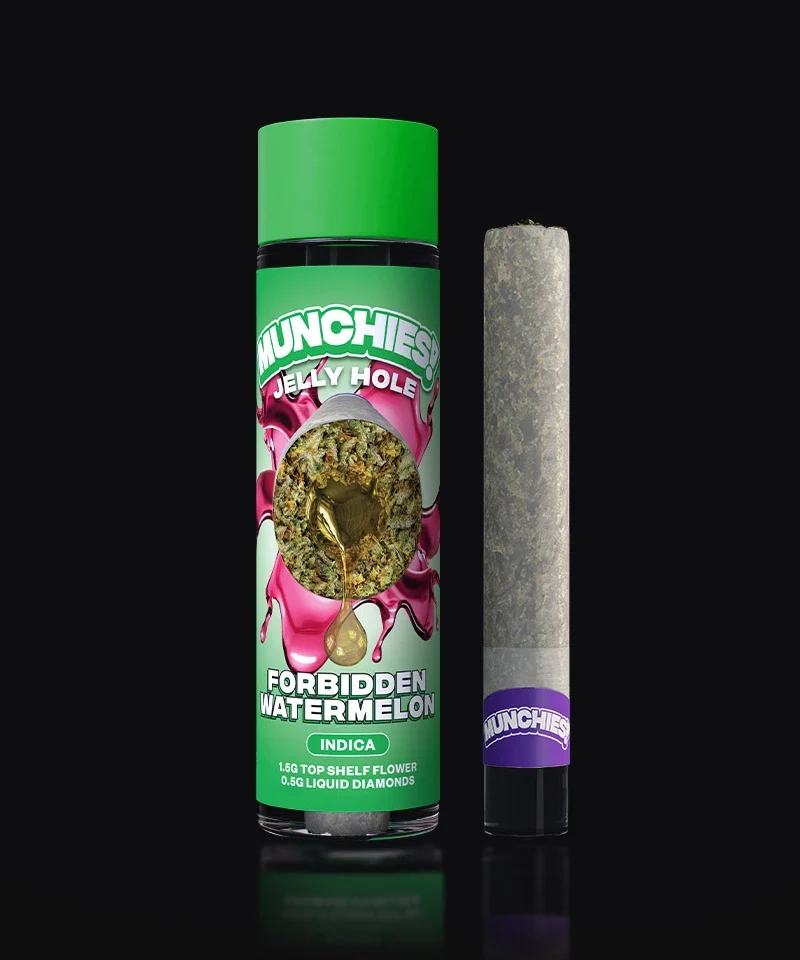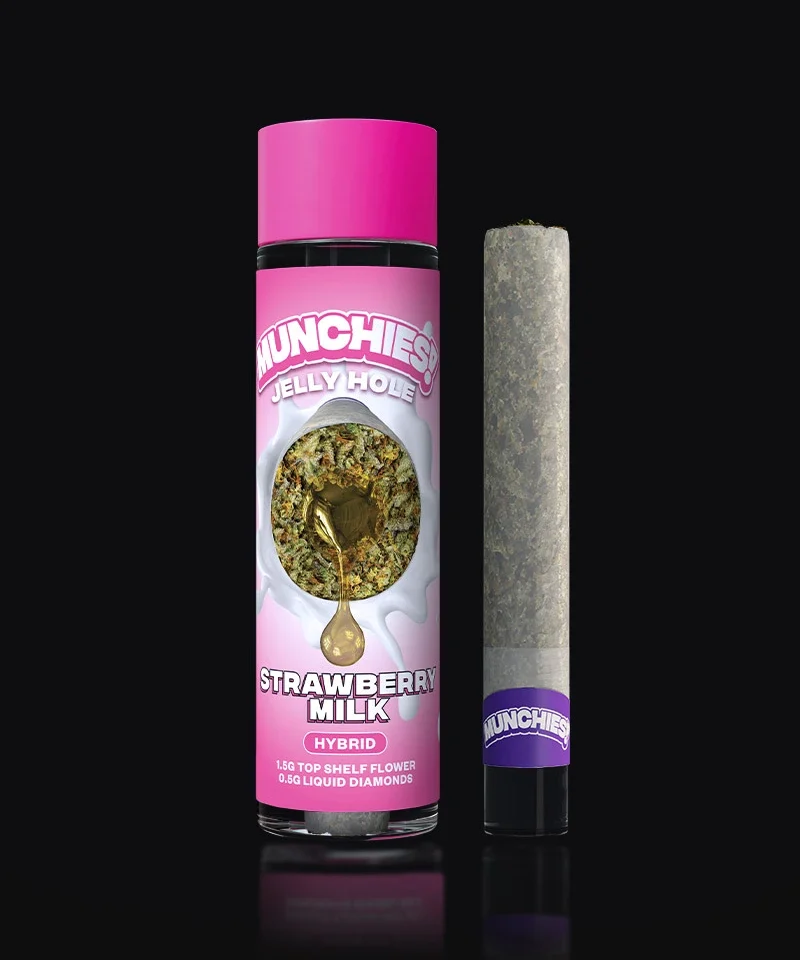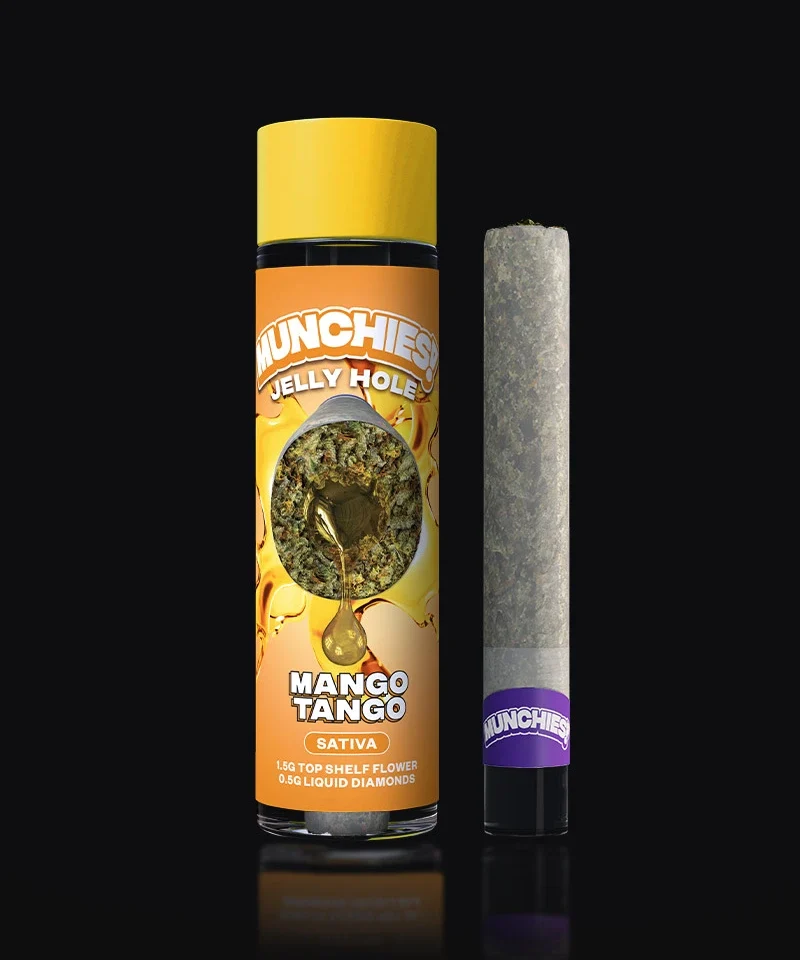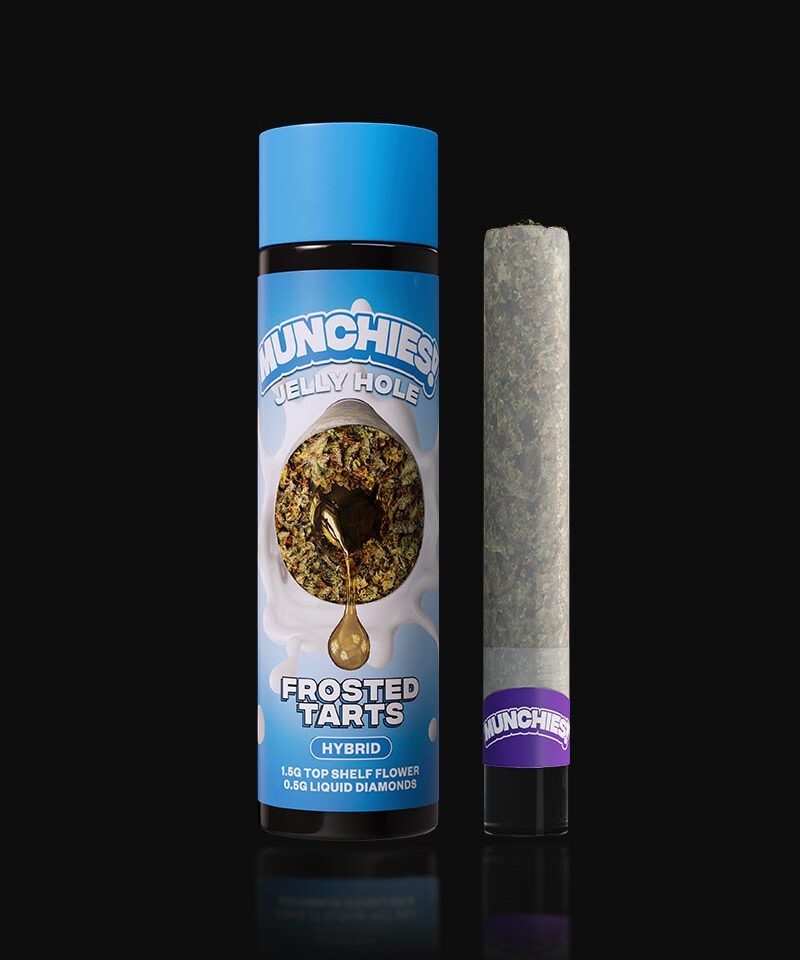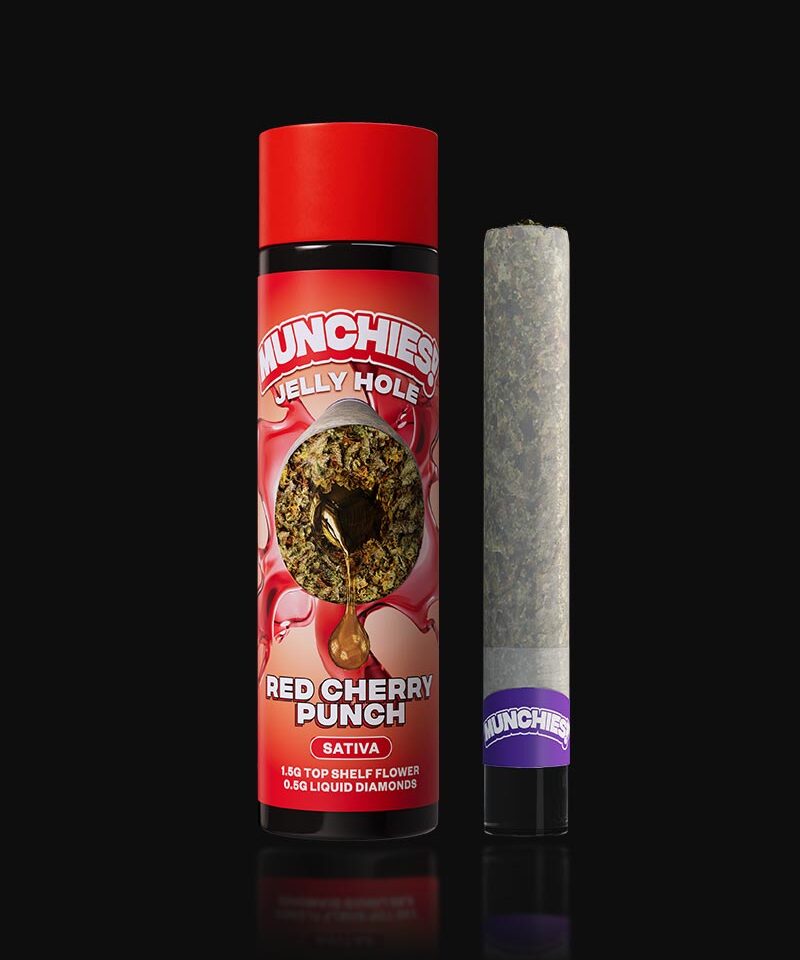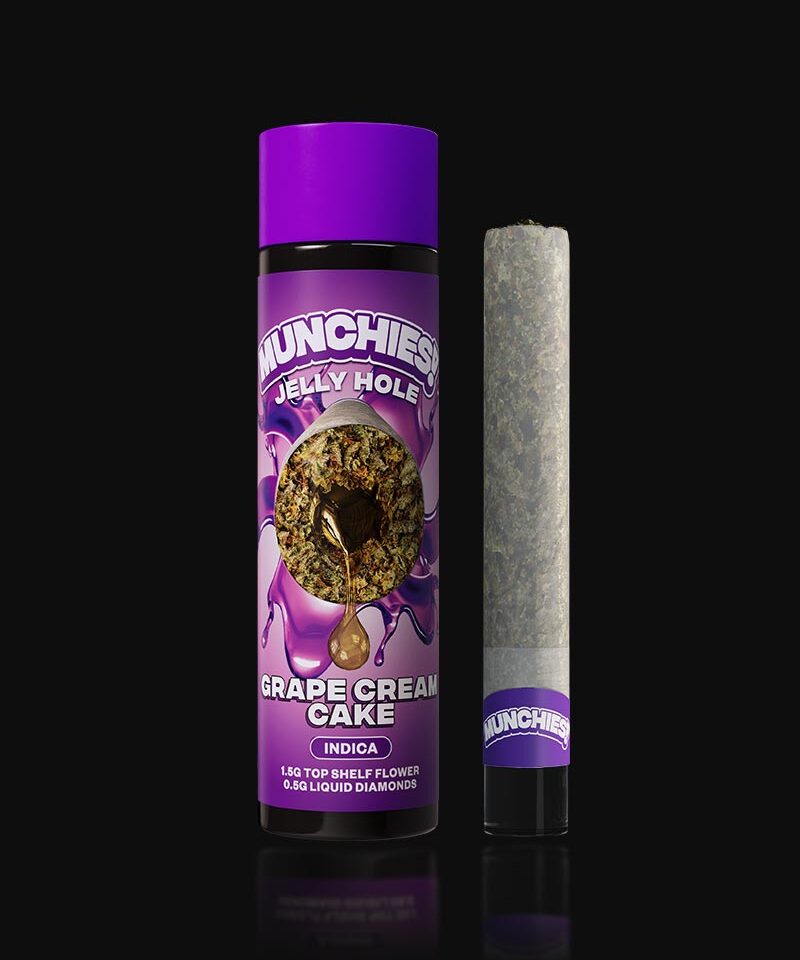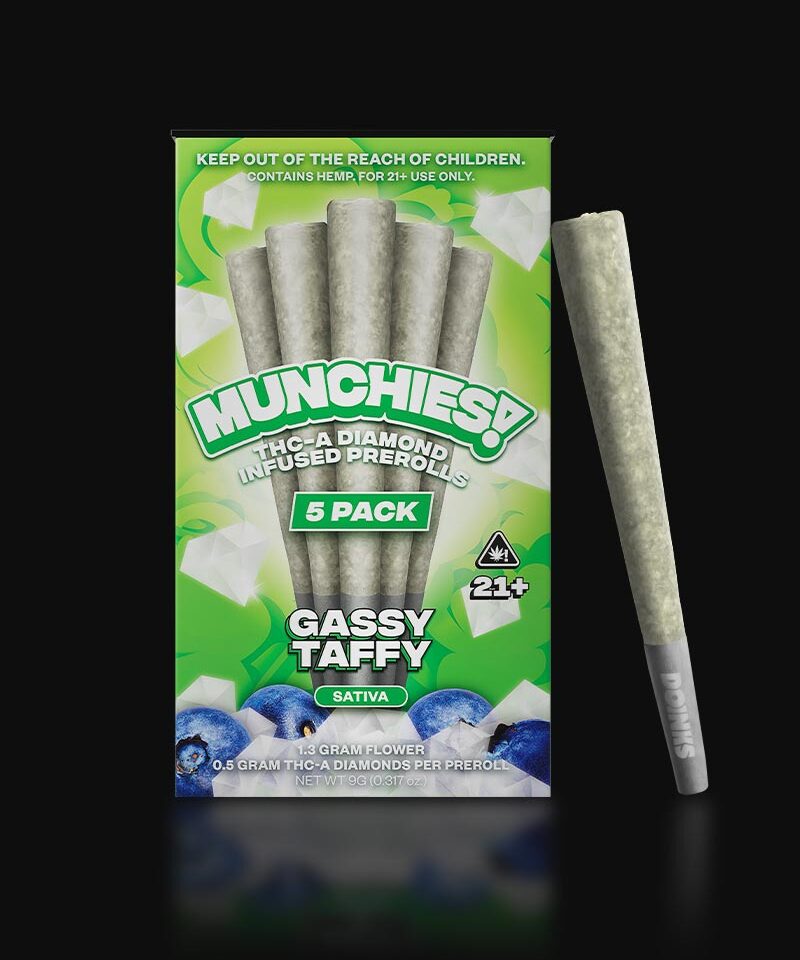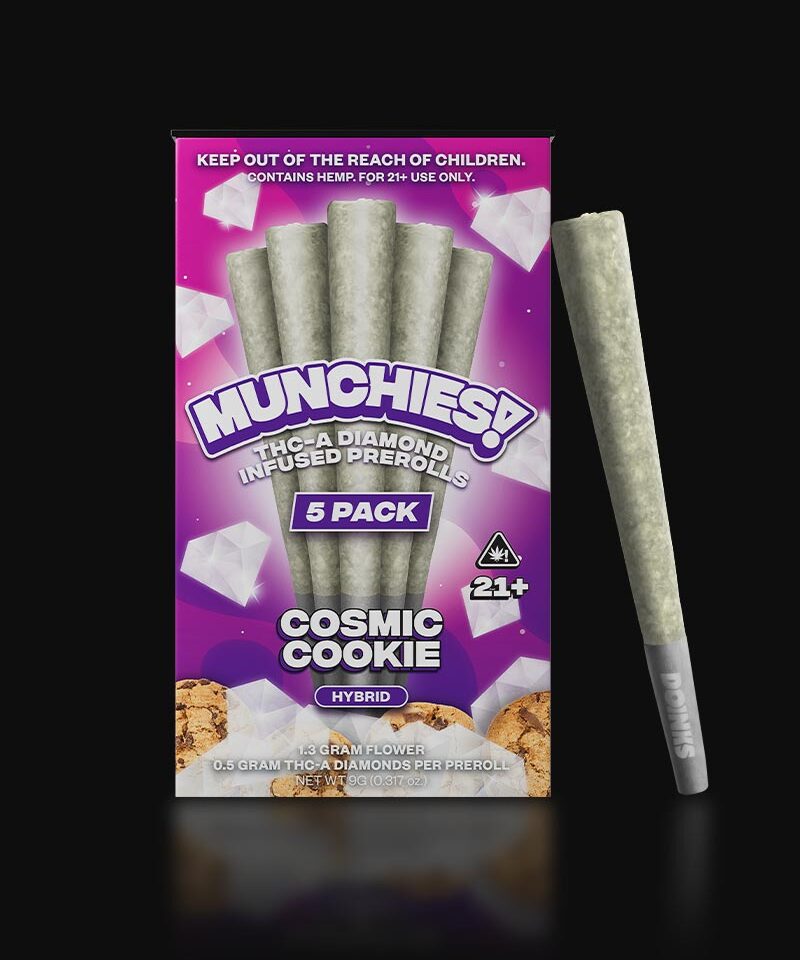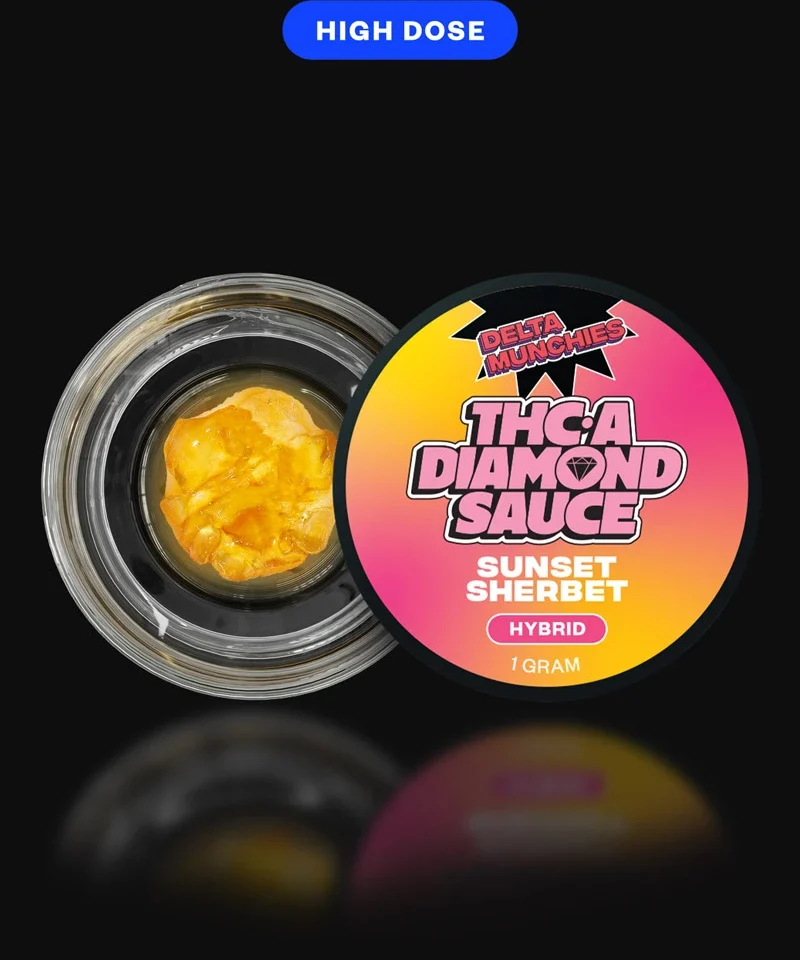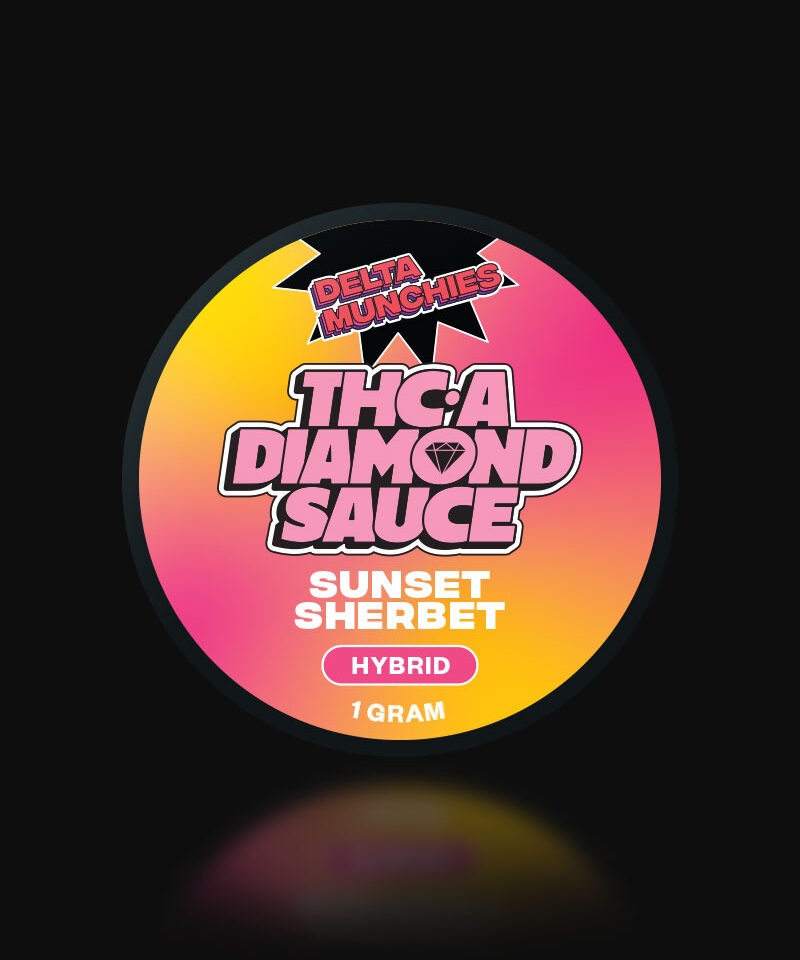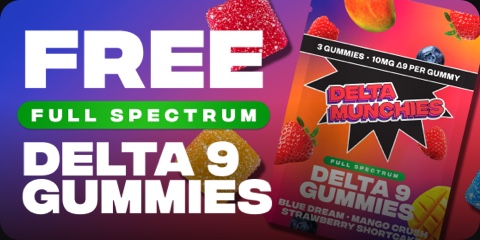Alternative Cannabinoids, Informative
What Does THCA Do to the Brain?
You probably already know that THCA is the non-psychoactive acidic precursor to THC and does not produce a “high” in its original form. But does this mean that THCA does not have any effects on the brain when consumed?
From neurochemistry to potential effects, this article walks you through the potential effects of THCA and how they affect your brain.
Want to try THCA and experience its effects for yourself? Check out MUNCHIES! line of THCA products!
Featured Products
Quiz-strong-items
Live Resin THC-A Dabs
Live Resin THC-A Dabs
Contents
- Key Takeaway
- What is the THCA Cannabinoid?
- How Does THCA Work?
- What are the Effects of THCA?
- Is THCA the Same as Delta 9?
- What are the Potential Benefits of THCA?
- What are the Potential Side Effects of THCA?
- THCA vs. CBD: How Do They Compare?
- Does THCA Work More in the Brain Than CBD?
- Where to Buy THCA Products Online
- Final Thoughts
- THCA: FAQS
Key Takeaway
- While the scientific understanding of THCA’s effects on the brain is still evolving, it may have some potential benefits for the brain.
- Unlike its counterpart THC, THCA does not induce a psychoactive high.
- THCA may be a great therapeutic option for individuals seeking the potential benefits of cannabis without the psychoactive side effects.
What is the THCA Cannabinoid?
THCA is a non-psychoactive cannabinoid that is found in cannabis plants. Interestingly, though, it is the acidic precursor to THC. However, THCA will not get you high. This means that if you ingest THCA, you will not experience the psychoactive experience that most other cannabinoids give the body.
But here’s the twist.
Upon exposure to heat, THCA decarboxylates to become the psychoactive THC. But in its original form, THCA is non-psychoactive and typically non-addictive.
How Does THCA Work?
THCA doesn’t directly bind to CB1 receptors in the same way as THC. Instead, it interacts indirectly. While THCA itself is non-psychoactive, it may have various effects through its interactions within the body’s Endocannabinoid System (ECS).
These effects may include anti-inflammatory, neuroprotective, and analgesic properties.
Also, you should note that THCA does not induce a “high” because it has an additional molecular carboxyl ring that stops it from binding with the receptors in the brain responsible for psychoactive effects.
What are the Effects of THCA?
Like every other cannabinoid, THCA can have several potential effects on the body. However, the effects of THCA can vary depending on factors such as dosage, individual physiology, and the presence of other cannabinoids and terpenes in the cannabis plant.
What Does THCA Do to the Brain?
When you take THC and other cannabinoids, they interact with receptors in your brain to cause the psychoactive effects you feel. However, thanks to its chemical structure, THCA doesn’t bind with these receptors.
Instead, THCA may have several neuroprotective qualities and may help prevent the brain from degenerating with age. We will explore the various ways THCA may protect the brain and body below.
Is THCA the Same as Delta 9?
The simple answer to this is “no.” THCA is the acidic precursor to delta 9 THC; that is, THCA converts into THC under certain circumstances, but it is an altogether different cannabinoid from THC before it is converted.
Converting THCA into THC is called decarboxylation, and it involves adding heat to THCA via vaping, smoking, cooking, or any other process.
Some of the key differences between THCA and delta 9 THC include:
- They have different chemical structures. THCA has a group of carbon atoms (carboxyls) attached to one end, which THC does not. Therefore, THCA is bigger than delta 9 THC and is unable to bind with the CB1 and CB2 receptors in the body as THC does.
- Their effects are different on the body. THC has psychoactive properties, which cause people to get “high,” while THCA does not get people high.
- Their market size differs. While THCA is getting more popular in the cannabis market, it is still behind THC in terms of the number and variety of products available.
What are the Potential Benefits of THCA?
We mentioned earlier that THCA has been linked with a couple of properties that carry positive health implications on the body and brain. Some of these include:
Analgesic
THCA may help relieve the pain of individuals going through chronic pain. However, unlike THC, it will do this without the psychoactive effects, which may be best for individuals worried about opioid dependence. This makes THCA a likely source of natural pain management.
Antiemetic
Some studies suggest that THCA may help with nausea and vomiting. This may be advantageous for individuals undergoing medical processes that typically cause nausea.
Anti-Insomnia
THCA, like THC, may also help people with difficulty sleeping. Anecdotal evidence suggests that THCA edibles can be helpful if you have not been sleeping.
Modulates Immune System
THCA may be placed in the same category of foods that may modulate the immune system, ensuring that it is prevented from tissue damage, amongst other things.
Neuroprotective
THCA has been strongly linked with neuroprotective properties that help preserve the brain against oxidative stress.
What are the Potential Side Effects of THCA?
More than the potential benefits of THCA, there are also potential side effects of THCA, and they are closely related to the side effects found in THC.
Some potential THCA side effects include:
- Dizziness
- Red eyes
- Dry mouth
However, these effects may be milder than what ordinarily will emanate from THC. Also, it is essential to note that THCA may show up on a drug test; therefore, if you have one coming up, you should be careful with your THCA consumption.
THCA vs. CBD: How Do They Compare?
THCA and CBD are similar in the sense that they are both non-psychoactive cannabinoids that may be found in cannabis plants. However, they still differ in certain regards.
- Their molecular structure
- The fact that THCA will convert into THC once it is heated up
Does THCA Work More in the Brain Than CBD?
THCA may have more effects on the brain than CBD. However, while THCA typically does not bind as strongly as THC in the brain, it may have more potential effects than CBD. However, this is not to say that CBD doesn’t work in the brain, as it has been linked with several health benefits and positive functions in the brain.
Where to Buy THCA Products Online
If you want to experience THCA for yourself, check out our impressive array of THCA prerolls on the MUNCHIES! website.
Or, if dabbing is your thing, we also have exciting THCA dab options just for you!
Final Thoughts
THCA itself doesn’t directly affect the brain in the same way THC does because it doesn’t produce the characteristic “high.” Unlike THC, THCA doesn’t produce intoxication, making it a potential therapeutic option for individuals seeking the potential benefits of cannabis without the psychoactive side effects.
However, some experts believe that THCA may have neuroprotective properties, potentially shielding brain cells from damage or degeneration. Either way, more research is needed to fully understand the effects and potential benefits of THCA.
THCA: FAQS
Does THCA Convert to Delta 9?
Yes, THCA converts into delta 9 THC when it is heated up. This process is called decarboxylation.
Is THCA Stronger than Delta 9?
THCA itself is non-psychoactive and will not get you high. Therefore, there is no basis for the comparison between THCA and delta 9 in terms of strength or potency.
Is THCA the Same as Delta 9?
No, it is not. THCA is the acidic precursor to delta 9 THC and an entirely different cannabinoid.
What is the Difference Between THCA and Delta 9?
The primary difference between them is that THCA is not psychoactive. In other words, THCA will not get you high while consuming delta 9 will produce a high.


